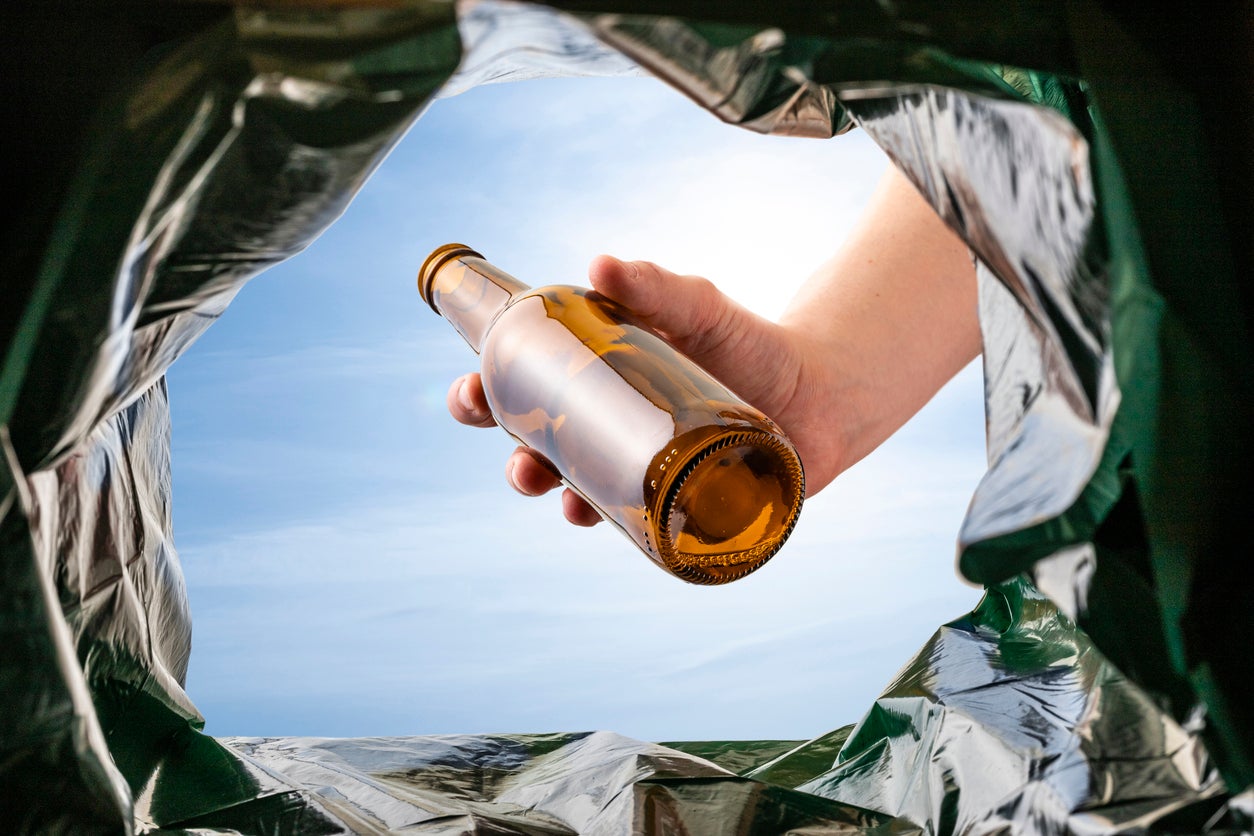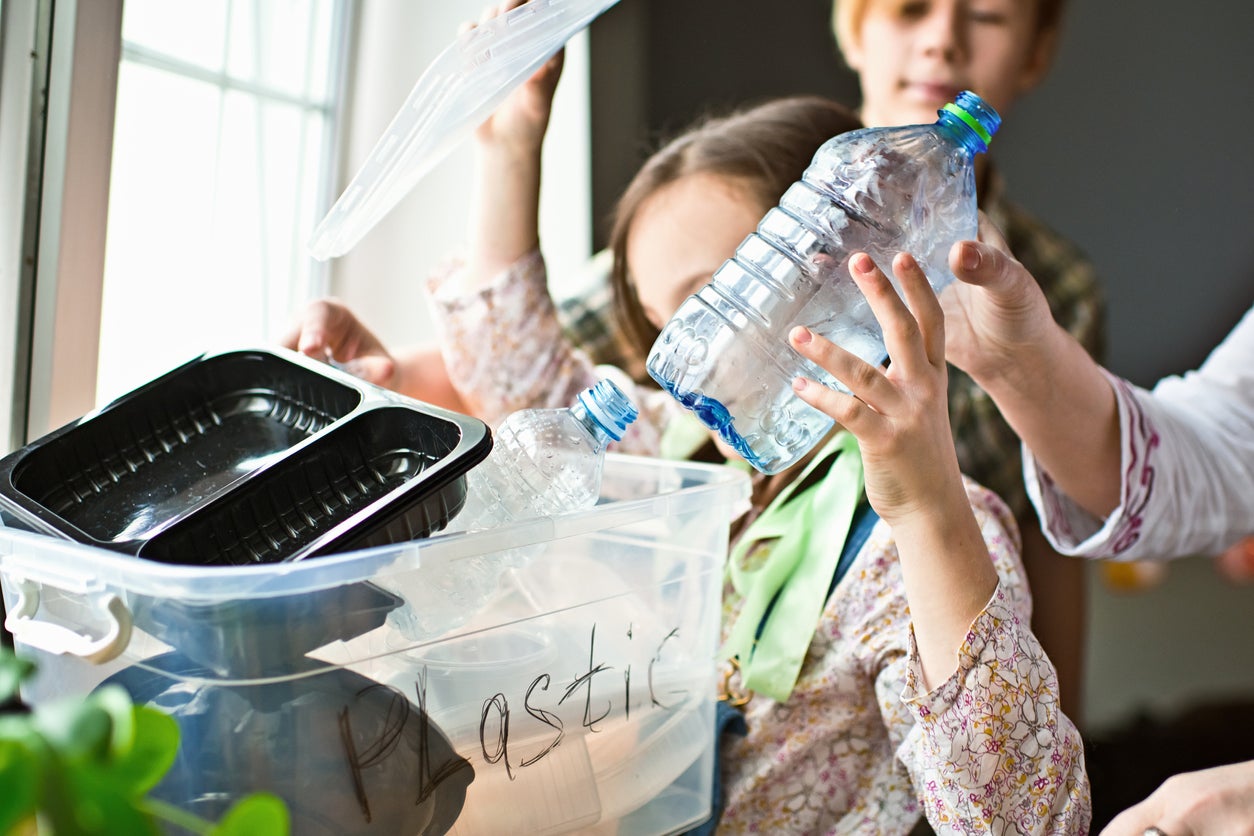New recycling changes explained: Everything you need to know
Government hopes changes will make it easier for people to recycle and minimise waste
The government has set out plans aimed at making it easier for people to recycle, minimise waste and do “our bit to help save the planet”.
Ministers have outlined proposals for a more standardised approach to recycling across the country, which the government hopes will put an end to confusion over what can and cannot be put in certain bins.
It comes after prime minister Rishi Sunak claimed to have scrapped a plan to introduce seven bins for waste and recycling. Officials, however, said the idea was never government policy, meaning it would not have been implemented.
Under the new plans, which the government has just finished consulting on, people - and businesses - will be able to recycle the same materials, whether at home, work or school.
‘Dry recycling’ items such as cardboard and paper, tins and glass will be collected together in one bin, while organic waste (food and garden) will be collected in a second and residual (non-recyclable) waste in a third.
An optional garden waste collection will be offered to all households, and councils can choose to collect food and garden waste together if preferred. Below is a full breakdown of what can and can’t be recycled:
Dry recycling

Under the new plans, councils will collect glass, metal and plastics, otherwise known as dry recyclables, in one bin. At present, recycling management depends on where you live some local authorities ask residents to separate these items into different receptacles.
The dry recycling items that can be collected together are
Glass:
- glass packaging, including bottles and jars
Metal:
- steel and aluminium tins and cans
- steel and aluminium aerosols
- aluminium foil
- aluminium food trays
- steel and aluminium jars and bottle lids
- aluminium tubes

Plastic:
- plastic bottles made of polyethylene terephthalate (PET)
- pots, tubs and trays made of PET
- PE and PP plastic tubes larger than 50mm x 50mm
- cartons for food, drink and other liquids, including aseptic and chilled cartons
- plastic film packaging and plastic bags made of mono-polyethylene (mono-PE), mono-polypropylene (mono-PP) and mixed polyolefins PE and PP, including those metallised through vacuum or vapour deposition (to be included from 31 March 2027)
Paper and card:
All paper and card except:
- paper and card that contains glitter or foil
- paper that is laminated
- stickers and sticky paper
- padded lined envelopes
- paperback and hardback books
- wallpaper
Food and garden waste
Weekly collections of food waste will also be introduced for most households across England by 2026, “ending the threat of smelly waste waiting weeks for collection and cutting food waste heading to landfill”.
Local authorities will be required to provide a garden waste collection service where it is requested but, as is currently the case, they can continue to choose to charge for this service.
If a local authority chooses to co-collect food and garden waste from households, they must ensure that food waste is collected for free on a weekly basis by 31 March 2026, where they are continuing to co-collect it with garden waste.
Food and garden items that can be collected are:
- bones
- eggshells
- fruit
- vegetable skins
- tea bags
- coffee grounds
All organic material from the garden except:
- ash
- full-sized trees
- invasive weeds and species
- soil
- turf cuttings
- waste products of animal origin
Residual (non-recyclable) waste
The government says it actively encourages councils to collect residual waste more frequently than fortnightly – this minimum standard “provides a backstop, not a recommendation.”
The combination of the backstop on residual collections, alongside the new weekly food waste collections, will ensure frequent collections of malodorous waste, and will stop the trend towards three or four weekly bin collections.
The government will also work with local authorities to assess the collection of residual waste more frequently, especially in urban areas, officials said.
The Department for Environment, Food and Rural Affairs, which is responsible for the plans, says the recycling rate in the UK increased from 11 per cent in the 2000 to 2001 financial year to 42 per cent in 2021 to 2022.
However, in recent years household recycling rates have “plateaued” at around 42 per cent to 44 per cent.
Environment secretary Therese Coffey said: “Simpler recycling will help us all recycle more easily, doing our bit to help save the planet and make the best use of precious resources that we use every day.
“Alongside weekly food waste collections, we are ending the postcode lottery of what you can put in your bin so that wherever you live in the country, you will be able to recycle the same products with confidence.”
Paul Vanston, chief executive of the Industry Council for Packaging and the Environment (INCEPN), said: “INCPEN’s recent citizens surveys show there is huge public support for the idea of clear, unambiguous recycling instructions on packaging that match-up with what can be put into household recycling bins wherever citizens live across the whole country.
“[These] announcements move us several steps closer to turbo boosting the country’s packaging recycling rates on metals, paper and card, glass, hard and soft plastics and cartons whilst enabling citizens to be super-confident when applying simpler recycling behaviours at home and at work in future.”
Join our commenting forum
Join thought-provoking conversations, follow other Independent readers and see their replies
Comments